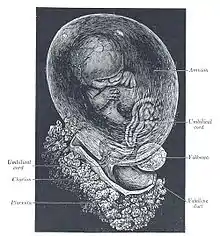feto
Esperanto

feto
Pronunciation
- IPA(key): /ˈfeto/
- Hyphenation: fe‧to
- Rhymes: -eto
Noun
feto (accusative singular feton, plural fetoj, accusative plural fetojn)
- fetus
- 1993, Donald Broadribb (translator), La Respubliko, Matraville: Libroservo de la Aŭstralia Esperanto-Asocio, translation of πολιτεια by Plato, published 2000, →ISBN:
- Personoj pliaĝaj rajtas koiti laŭvole, sed se koncipiĝos rezultas, ili devas abortigi la feton aŭ ĝin mortigi post la nasko.
- (please add an English translation of this quote)
-
Ido
Pronunciation
- IPA(key): /ˈfeto/
Italian
Latin
Pronunciation
- (Classical) IPA(key): /ˈfeː.toː/
Verb
fētō (present infinitive fētāre, perfect active fētāvī, supine fētātum); first conjugation
- (passive) I bring forth, breed.
- (active) I impregnate; to make fruitful.
Inflection
Descendants
References
- feto in Charlton T. Lewis and Charles Short (1879) A Latin Dictionary, Oxford: Clarendon Press
- feto in Gaffiot, Félix (1934) Dictionnaire Illustré Latin-Français, Hachette
Portuguese
Pronunciation
- IPA(key): /ˈfɛ.tu/
- (South Brazil) IPA(key): /ˈfɛ.to/
Noun
feto m (plural fetos)
- (embryology) fetus (human embryo after the eighth week of gestation)
- (biology) fetus (unborn or unhatched vertebrate showing signs of the mature animal)
Etymology 2
From earlier fento, from Old Portuguese *feeyto, from Latin filictum (“place abounding in ferns”), from filix, filicem (“fern”).
Synonyms
- samambaia (Brazil)
Derived terms
- feto-arborescente
- feto-fêmeo
- feto-macho
- fetusca
Spanish
Pronunciation
- IPA(key): /ˈfeto/, [ˈfet̪o]
Tetum
This article is issued from Wiktionary. The text is licensed under Creative Commons - Attribution - Sharealike. Additional terms may apply for the media files.